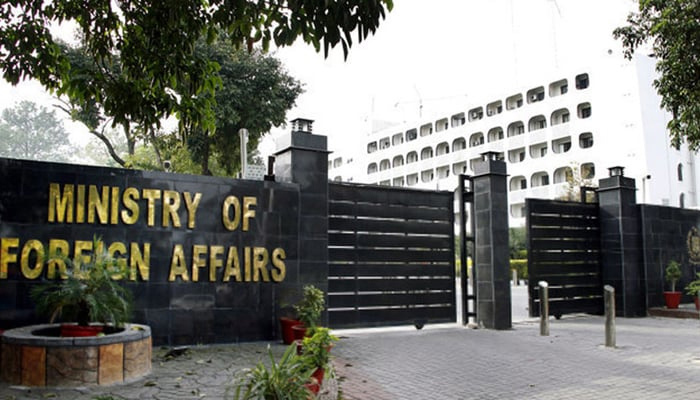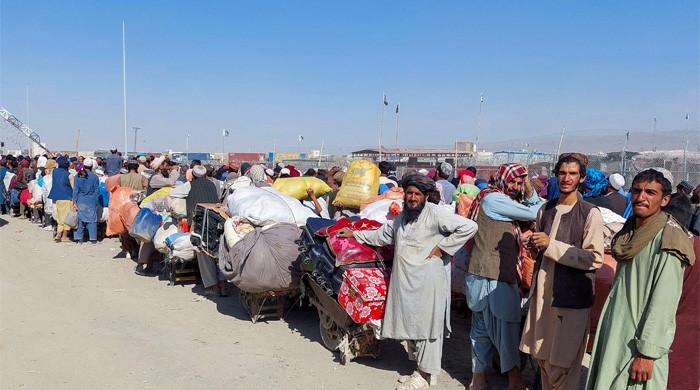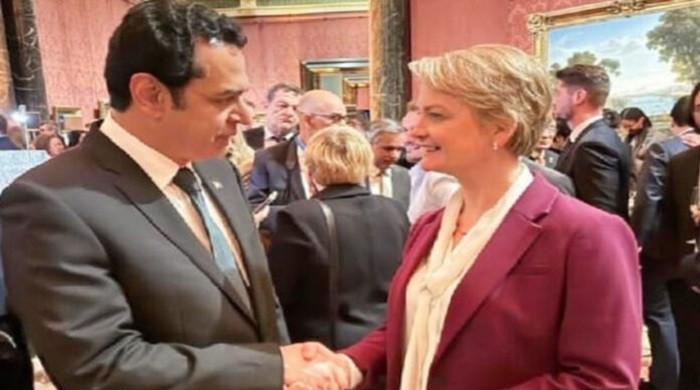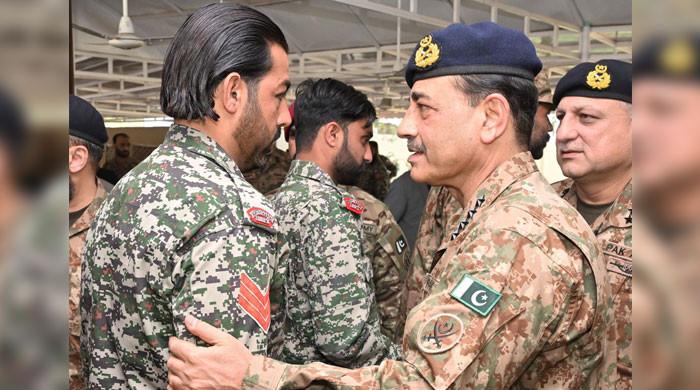'Foreign affairs federal govt's domain', FO reminds KP over Kabul initiative
KP govt to send two delegations to Afghanistan for dialogue over security after go-ahead from federal govt
February 17, 2025

- Federal govt to study all aspects of matter before giving its approval.
- Pakistan's Kabul mission could be asked to facilitate after Centre's nod.
- Sources say KP govt being expected not to defy SOPs in the matter.
ISLAMABAD: The Foreign Office has reaffirmed that foreign affairs fall under federal jurisdiction while responding to the KP government's initiative to send delegations to Afghanistan for talks over security and economic ties, The News reported on Monday.
“Under the Constitution, foreign affairs are the federal government’s domain,” Foreign Office Spokesperson Shafqat Ali Khan said while talking to this correspondent.
Meanwhile, sources in the federal government said that a senior KP government official had made it public the other day that the federal government would be consulted after completing homework for consigning the delegations, indicating that the delegations would be dispatched after a go-ahead from the federal government.
It is understood that the federal government would study all aspects of the matter before giving its nod. It could include some of its experts/officials in the delegations. The federal government would also determine the parameters of the talks, the sources said.
Once the delegations are allowed to proceed ahead, the Pakistan mission in Kabul could be asked to facilitate them, the sources added.
It is believed that the KP government would not defy the SOPs in the matter, they also said.
It may be noted that Adviser to Khyber Pakhtunkhwa (KP) Chief Minister Barrister Mohammad Ali Saif said on Sunday that the provincial government would dispatch two delegations to Afghanistan to hold talks with Kabul.
As per the terms of references (ToRs), two delegations will be dispatched to Kabul with the first one tasked with creating a conducive environment for talks and handling diplomatic matters whereas the second one will comprise various stakeholders.
The development came against the backdrop of increased terrorist incidents in Pakistan which Islamabad has time again blamed on outlawed groups based in Kabul — something vehemently denied by the Afghan Taliban-led administration.
The two nations share a porous border spanning around 2,500 kilometres with several crossing points which hold significance as a key element of regional trade and relations between the people across both sides of the fence.
However, the issue of terrorism remains a key issue for Pakistan which has urged Afghanistan to prevent its soil from being used by groups such as the Tehreek-e-Taliban Pakistan (TTP) to carry out attacks inside the former's territory.
Islamabad's reservations have also been confirmed by a report submitted to the United Nations Security Council (UNSC) by the Analytical Support and Sanctions Monitoring Team which has revealed a nexus between Kabul and the TTP with the forming providing logistical, operational and financial support to the latter.
Furthermore, this is also evident from the statistics compiled by the Pakistan Institute for Conflict and Security Studies (PICSS) which show that KP and Balochistan — both of whom abut Afghanistan — have remained the worst-affected provinces from increased terrorist attacks which witnessed a surge of 42% last month compared to December 2024.
Owing to the KP's security situation — including the months-long turmoil in the Kurram region — KP CM Gandapur in September 2024 put out a proposal of holding direct talks with Afghanistan to address terrorism concerns for lasting peace in the restive bordering regions.
The announcement, backed by Pakistan Tehreek-e-Insaf (PTI) founder Imran Khan, received flak from the federal government which termed it as a direct attack on the federation.











